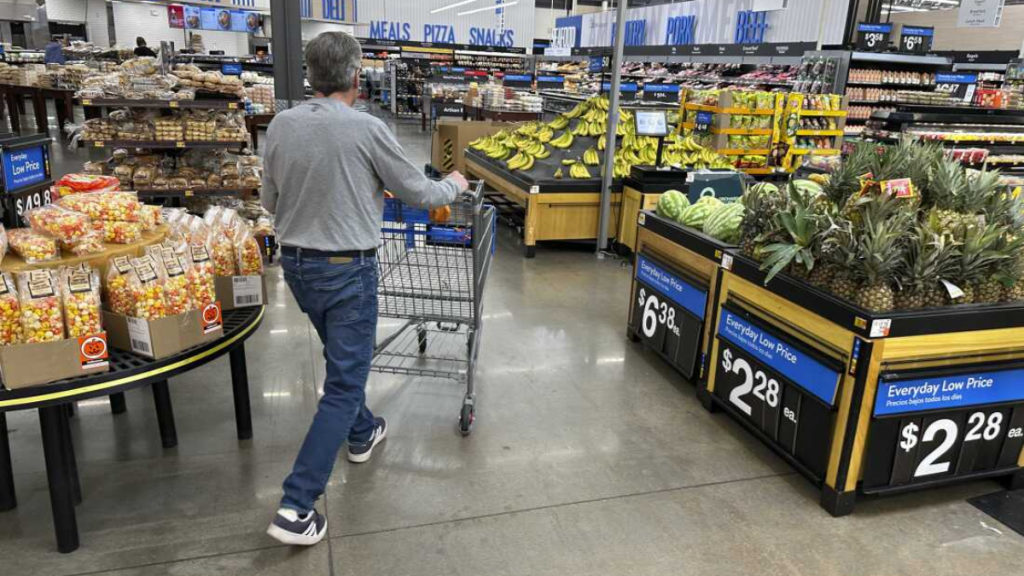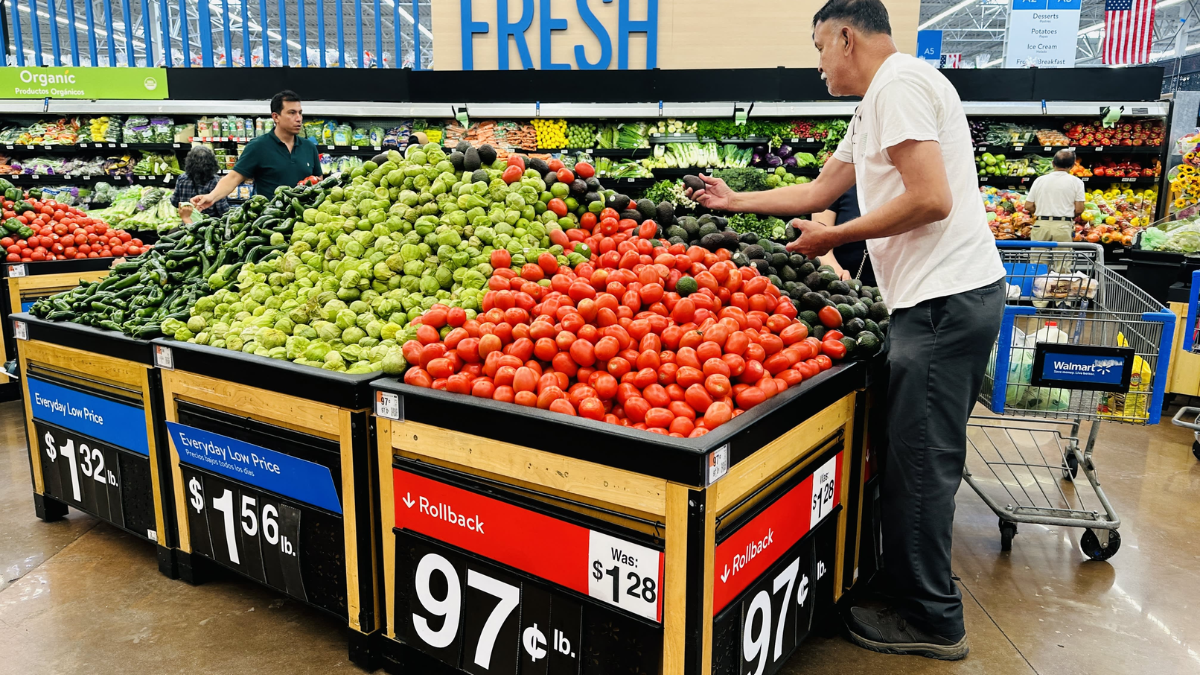Bentonville, Ark. — Walmart, one of the nation’s largest grocery and retail chains, has alerted shoppers that prices for four popular grocery products will increase in the coming weeks due to rising tariffs on imported goods.
The retail giant attributes these hikes directly to escalating trade tariffs, which have increased the cost of sourcing and manufacturing certain food items.
As tariffs affect the global supply chain and add costs for retailers, Walmart says it must adjust prices on specific groceries to manage the higher expenses. This announcement comes amid ongoing trade tensions and a broader inflationary environment that has impacted grocery stores nationwide.
Which Groceries Are Affected?
Walmart has identified four key grocery items that will experience price increases. These include:
- Almonds: A staple snack and baking ingredient sourced largely from international markets.
- Pistachios: Another popular nut imported from tariff-affected countries.
- Olive Oil: Widely used in cooking and salad dressings, much of which is imported from Mediterranean countries.
- Cheese: Certain specialty cheeses imported from Europe are facing tariff-related cost increases.
The company noted these items are particularly vulnerable to tariffs because they rely heavily on international supply chains and face high import duties.
Impact of Tariffs on Grocery Prices
Tariffs are taxes imposed by governments on imported goods to protect domestic industries or influence trade balances. While tariffs can support local producers, they often lead to higher prices for consumers when imported goods are subject to added costs.
The current tariffs impacting Walmart’s grocery prices stem from ongoing trade disputes and tariff adjustments between the United States and countries such as China, Turkey, and some European nations. These tariffs have increased the cost of nuts, oils, and specialty cheeses.
Because Walmart sources large quantities of these products globally, the tariff hikes translate to higher wholesale costs, which retailers often pass on to consumers.
Walmart’s Response and Price Adjustments
In an official statement, Walmart said, “We continually work to keep prices low for our customers. However, recent tariff increases on key imported grocery items have resulted in unavoidable price adjustments on almonds, pistachios, olive oil, and certain cheeses.”
The retailer emphasized that these price increases will be implemented gradually and that Walmart is committed to transparency about pricing changes.
Shoppers can expect price increases of approximately 5% to 10% on these items, depending on product variety and location. Walmart encourages customers to check their local stores or the online platform for updated prices.
Broader Grocery Market Effects
Walmart’s announcement reflects a broader trend across the grocery industry, where tariffs and supply chain disruptions are driving price increases. According to the U.S. Bureau of Labor Statistics, grocery prices have seen a steady rise over the past two years, with food inflation remaining a concern for many households.
Other retailers have also reported higher costs for imported food products, including nuts and olive oils, which rely heavily on overseas suppliers.
Economists warn that if tariffs remain in place or escalate, grocery prices could continue to rise, further straining family budgets nationwide.

Consumer Tips for Managing Grocery Costs
As prices adjust due to tariffs, consumers can consider several strategies to manage their grocery expenses:
- Look for Local Alternatives: Purchasing nuts, oils, and cheeses produced domestically may provide cost savings.
- Buy in Bulk: Stocking up on staple items when they are on sale can help offset future price increases.
- Use Store Brands: Walmart and other retailers offer private-label brands that are often priced lower than premium imports.
- Shop Sales and Coupons: Keeping an eye on discounts and using digital coupons can help reduce costs.
For consumers wanting to stay informed about product pricing and tariffs, government resources such as the U.S. Customs and Border Protection (CBP) website provide updates on trade policies and tariff changes.
What Are Tariffs and How Do They Affect Consumers?
Tariffs are import taxes placed on goods crossing international borders. They are designed to make imported products more expensive, thereby encouraging consumers to buy domestic alternatives.
While tariffs can protect domestic industries and jobs, they often increase costs for businesses that rely on imported materials. These costs are usually passed down to consumers, resulting in higher prices for everyday products.
More information about tariffs and trade policies can be found at the Office of the United States Trade Representative (USTR).
Walmart’s Commitment Amid Price Changes
Despite the necessity of raising prices on select groceries, Walmart continues to focus on affordability. The company remains one of the lowest-price leaders in retail and is actively working with suppliers to manage costs.
Walmart also invests in supply chain efficiencies to minimize disruptions and pass on savings to customers. The retailer encourages shoppers to reach out with feedback about price changes and looks for ways to offer promotions and discounts during these challenging times.
Conclusion
Walmart’s recent warning about price increases on almonds, pistachios, olive oil, and cheese highlights how tariffs can impact grocery prices and consumer spending. While the increases are expected to be moderate, shoppers are advised to plan accordingly and explore cost-saving alternatives.
As trade policies evolve, consumers and retailers alike will continue navigating the complexities of a global supply chain and its effects on food affordability.
Disclaimer – Our team has carefully fact-checked this article to make sure it’s accurate and free from any misinformation. We’re dedicated to keeping our content honest and reliable for our readers.
